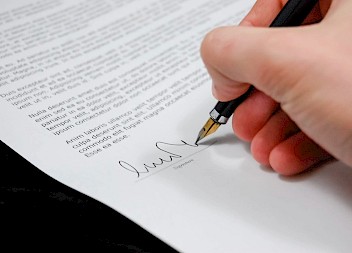The Government is entitled to recover any state benefits and NHS treatment charges from the party who was at fault for your injuries.
The principle is that the person that caused you harm, rather than the State, should pay compensation to you and that you should not be compensated twice for the same loss. Therefore, the Compensation Recovery Unit (CRU) part of the Department of Work and Pensions was set up to make sure that state benefits and NHS treatment charges are repaid.
For example, your claim may include a claim for your loss of earnings as you were unable to work for a period. However, you may have received some benefits from the government to make partly up for this. If you are successful in recovering compensation for your loss of earnings, then you are required to pay back the benefits you were paid for being unable to work. If this did not happen, then you would receive two lots of payment for the same loss.
Every compensation claim has to be reported to the CRU by the party that injured you. It will be necessary for you to provide details of your employer, your date of birth, and your National Insurance number to your opponent’s insurers to support the CRU in assessing their right to recover the benefits and how much they expect to be repaid. The CRU then issues a certificate of the amount it requests to recover: called a ‘Certificate of Recoverable Benefits’.
The amount repayable to the CRU is taken from your compensation and paid straight to the CRU by the party you have successfully sued or their insurers.
Which Benefits can be recovered by the CRU and offset from your damages?
Benefits can only be recovered on a ‘like for like’ basis; so, for example, benefits paid for loss of earnings can only be subtracted from the part of your compensation which represents lost earnings. If you do not recover compensation for lost earnings, then you do not have to pay those back, even if you do recover compensation for other things, such as your pain and injury.
Inability to work benefits
Compensation for lost earnings may be reduced where benefits such as the following have been paid:
- Industrial Injuries Disablement Benefit
- Employment and Support Allowance (previously known as Incapacity Benefit, Severe Disablement Allowance
- Universal credit (previously known as Income Support)
Care and Carer’s benefits
Compensation for the value or cost of care may be reduced if you have had benefits such as the following:
- Attendance Allowance
- Care Component of Personal Independence Payment (previously known as Disability Living Allowance)
- Disablement Pension increase for Constant Attendance
- Exceptionally Severe Disablement Allowance
Mobility benefits
Compensation for loss of mobility may be reduced where benefits such as those listed below have been paid:
- Mobility Allowance
- Mobility Component of Personal Independence Payment) previously known as Disability Living Allowance
How long do I have to repay benefits to the CRU from my compensation?
The ‘relevant period’ starts on the day following your accident or injury, and concludes on the day your compensation is paid. The applicable period cannot extend for longer than 5 years- this is the maximum time over which you may have to repay benefits. Once your claim is settled, there is no additional responsibility to repay benefits you may receive in the future.
Challenging a CRU Certificate
Your solicitor should always send a copy of the CRU Certificate to you for you to check. Sometimes mistakes can be made, and amounts are requested to be repaid at the end of a successful claim that were not actually paid as a result of any negligent sustained injuries. It is also important to check the accuracy of the CRU assessment and mistakes can happen. If so, it is possible to challenge a CRU Certificate.
About Medical Solicitors
Our friendly team of specialist lawyers at Medical Solicitors have a lot of experience in bringing successful medical negligence claims.
Compensation can be claimed where there has been delay in getting a patient to hospital, delay in diagnosis, inappropriate advice given concerning care options and risks and benefits of such options, where there have been excessive delays in providing actual treatment, or where there has been any substandard care that amounts to actual Medical Negligence.
Do contact our friendly team of specialist lawyers at Medical Solicitors. We conduct most of our Clinical and Medical Negligence claims under ‘No Win, No Fee’ agreements, also known as Conditional Fee Agreements. So, you do not have to worry about how you are going to afford to bring a medical negligence claim for compensation. You have nothing to lose in speaking to us.











